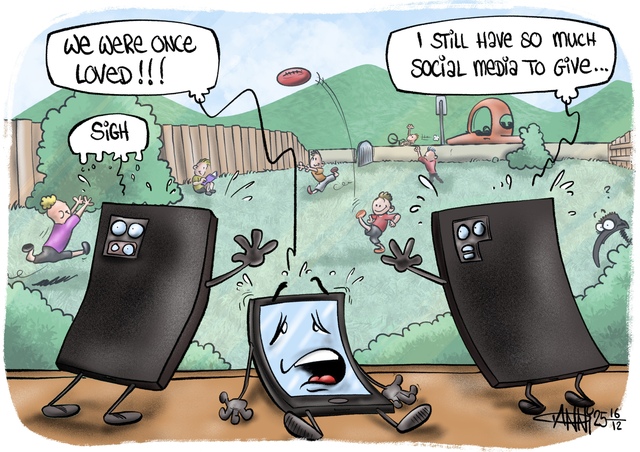Gordon Brooker hails from Kallista, and has published two fiction books.
He has loved reading since he was little, but hasn’t always been writing for the masses.
His first job was working for Penguin, writing rejection letters for unsolicited manuscripts.
“How the wheel turns,” he says.
Writing under the name G.F.J Brooker, Gordon has since published two fiction books and is working on a serialised story set in the Dandenong Ranges, which he says is “a bit disposable” and easily consumable.
“The locally set mystery which I’m suggesting is based on somebody stealing Puffing Billy,” he said.
“You hear the whistles, you see the trees, you look at the people in a cafe and sit down and write; it’s a great inspiration.”
He describes his stories as “domestic beige”, forgoing exotic locations and hardboiled characters and without gratuitous violence and language.
Brooker says he has been writing since he was little because of his love for reading.
“Some of the earliest efforts, we’ll never see the light of day because it was pretty awful,” he says.
“Suddenly you’ll hit a patch where you find your voice. You tried your experiments, most of them don’t work, but all of a sudden you hit something which feels like it comes out far more naturally.”
“The more you do it, the better you get. You’re going to realise what works and what doesn’t.”
He’s also taken his pen to comedy through a story called Lostalgia and the dystopian sci-fi story Wormcast, with the latter being set in a future city that “sort of resembles Melbourne and a country which sort of resembles the Dandenongs.”
Brooker says receiving feedback is an important part of the process of improving your writing.
“It’s probably the negative stuff that has the most impact. There is nothing which exposes you more than sending out something you created and asking people to have an opinion on it.”
“Having somebody you’ve never met read something you’ve written is both daunting and uplifting. When they say that this is awful you take notice and take it to heart. If you don’t respond and try to do better then you have to wonder who you’re writing for.”
Brooker says he likes his stories to make logical sense and if they don’t, he always goes back to edit.
“I keep telling my teenage daughter, don’t submit the first draft. You can only edit what you’ve written,” he says.
“The best writing plan never survives pen-hitting paper. I can have the best intentions and plan in the world but as soon as I start writing, something else comes out and I just tend to go with it.”
You can view Gordon Brooker’s author page on Amazon at amazon.com/G.J.F.-Brooker/e/B09XWGKNYN?ref_=pe_1724030_132998060







